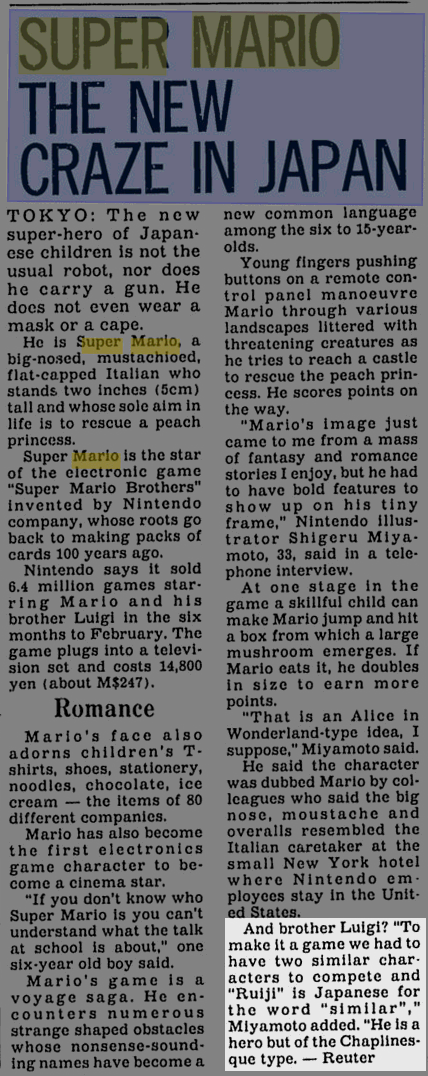Franchise: Mario
Nintendo World Championships 1990
Super Smash Bros. for Nintendo 3DS
Mario & Sonic at the Olympic Winter Games
Mario Bros.
Mario Party: Fushigi no Challenge World
Mario & Luigi: Dream Team
Super Mario RPG
Game & Watch Gallery 3
Mario Party 9
Mario Party: Island Tour
Donkey Kong
New Super Mario Bros. Wii
Mario Party
Donkey Kong Junior
Ultimate NES Remix
Super Mario Maker 2
Mario Party 8
Super Mario 64 2
Princess Peach: Showtime!
Super Smash Bros. Ultimate
Mario + Rabbids Kingdom Battle
Mario Tennis Aces
Super Smash Bros. Melee
Super Mario Land 2: 6 Golden Coins
Mario & Sonic at the Sochi 2014 Olympic Winter Games
Mario Party 3
Mario Party: The Top 100
Mario & Luigi: Brothership
Super Mario Galaxy
Mario Artist: Talent Studio
Dr. Luigi
Super Mario Bros.
Mario & Sonic at the Olympic Games
Yoshi's Island DS
Super Mario World 2: Yoshi's Island
Mario Party: Star Rush
Super Paper Mario
Poochy & Yoshi's Woolly World
Mario Artist: Polygon Studio
Mario & Wario
New Super Mario Bros. Mii
All Night Nippon Super Mario Bros.
Mario Kart DS
Tetris & Dr. Mario
Mario Sports Superstars
Super Mario Bros. 2
Super Mario FX
Yoshi
Donkey Kong
Mario Strikers Charged
Viewing Single Trivia
▲
1
▼
Luigi's name comes from a pun on the Japanese word ルイージ¸ or ruiji meaning "similar". Since all of his sprites in earlier games were just recolors of his brother's sprites, and his name was Italian like Mario's was, it seemed to fit him.
Comments (2)
Sorry to disagree, but similar in Japanese actually translates to something else: https://translate.google.com/?sl=en&tl=ja&text=Similar&op=translate
You must be logged in to post comments.

https://en.wiktionary.org/wiki/似る#Japanese
https://en.wiktionary.org/wiki/類似#Japanese
Miyamoto's next sentence in this article describes Luigi as "a hero but of the Chaplinesque type." The fact that he's categorized as a "Chaplinesque type" is an important distinction, because Chaplinesque on its own is used as an adjective for having or trying to emulate the traits of Charlie Chaplin's film characters, but this style being denoted by Chaplin's last name means that his characters' qualities are unique enough that it's inherent that not everyone naturally acts like them. Luigi's timid and occasionally heroic qualities aren't an appearance he's putting on to resemble those characters, he was designed to genuinely behave like them. So in this case "ruiji" is being used correctly to refer to the fact of being similar as Luigi's name originates from a pun meaning that he is a similar type of hero.